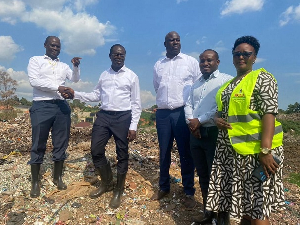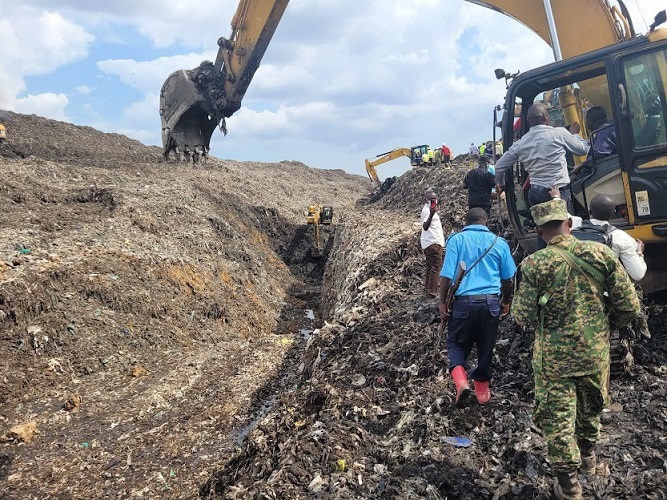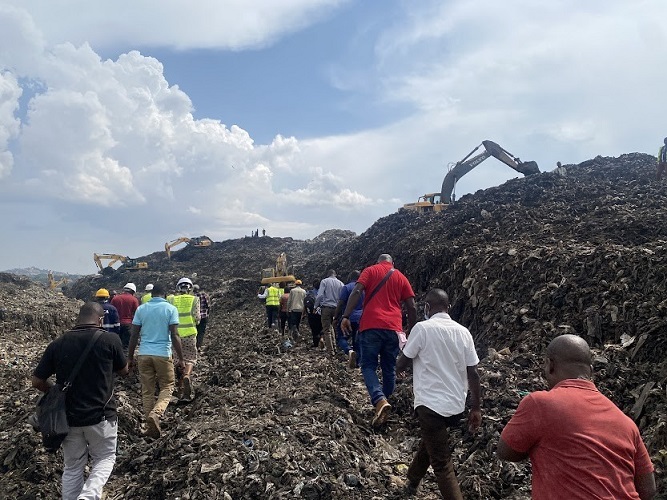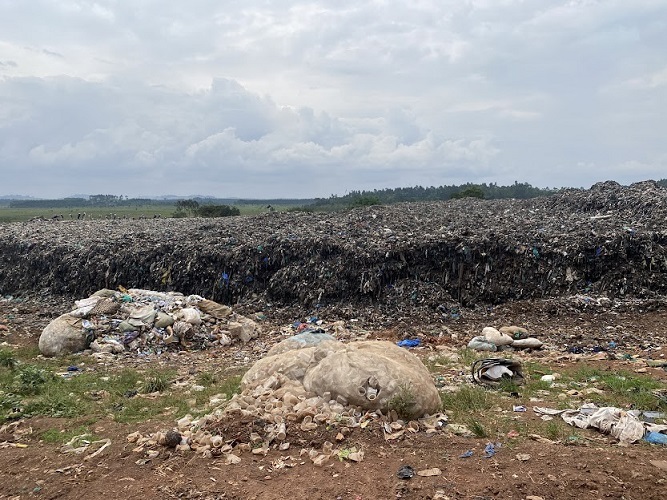 Executive Chairman of JGC, Dr. Joseph Siaw Agyepong [2nd from left], others in a group photograph
Executive Chairman of JGC, Dr. Joseph Siaw Agyepong [2nd from left], others in a group photograph
The Ugandan government has partnered with Ghana's Jospong Group of Companies (JGC) to decommission the 39-acre Kiteezi Landfill in the Wakiso District near Kampala. The decommissioned site will be transformed into an ecological recreational facility.
Additionally, JGC plans to invest in integrated composting and recycling systems as well as transfer stations, providing comprehensive waste treatment and disposal solutions to improve environmental sanitation in the Greater Kampala Metropolitan Area.
This system will produce organic compost for agricultural and horticultural applications, while recovered plastics will serve as raw materials for a new bin manufacturing facility.
The initiative is expected to create over 2,000 direct jobs for Ugandans. This collaborative project comes on the heels of a devastating waste slide on August 10, 2024, which resulted in 23 fatalities and significant property damage.
Jospong Group, renowned for its extensive experience in Africa and Asia, is well-equipped to handle this project. As a highly diversified holdings company with many subsidiaries, they possess the expertise to effectively manage waste and promote sustainability.
The project handover ceremony, held recently, drew notable attendees including Minister for Kampala, Joseph Kyofatogabye, and Dr. Joseph Siaw Agyepong, Executive Chairman of JGC in Kampala, East Africa.
The Minister highlighted that the partnership was sanctioned by cabinet, adding that the initiative was a significant step towards addressing waste management challenges in Uganda and promoting eco-friendly practices.
“We will significantly reduce the height of the current waste mass, stabilise the slopes and cap it, transforming the landscape of the Kiteezi community,” he emphasised.
Mr. Kyofatogabye explained that, in simple terms, the plan is to reduce the gradient of the slopes and then cap it. He added that after a thorough search, the central government chose Jospong Group due to its resources, experience, expertise, and ability to provide cost-effective and easily implementable solutions.
“I just can't hold on any longer with all this garbage," he bemoaned.
He assured that individuals residing within a 200-meter radius of the site will receive government compensation.
The Executive Chairman of JGC, Dr. Joseph Siaw Agyepong, welcomed the project with optimism, highlighting his company's extensive expertise in waste management, garnered over 25 years of operation.
"We have extensive experience in waste management, operating 16 plants in Ghana and having constructed an additional 38 facilities specialising in medical waste and other waste materials," he disclosed.
Dr. Agyepong revealed that he had personally visited Uganda to study their waste management system, and as a result, his company has adopted several innovative ways to manage it.
He assured that his company is committed to recovering the compost, which will subsequently become the property of the central government of Uganda.
He emphasised that, given the high organic content of Uganda’s municipal solid waste, which is about 80%, the country has a unique opportunity to capitalise on this potential by converting the waste into organic fertilizers.


